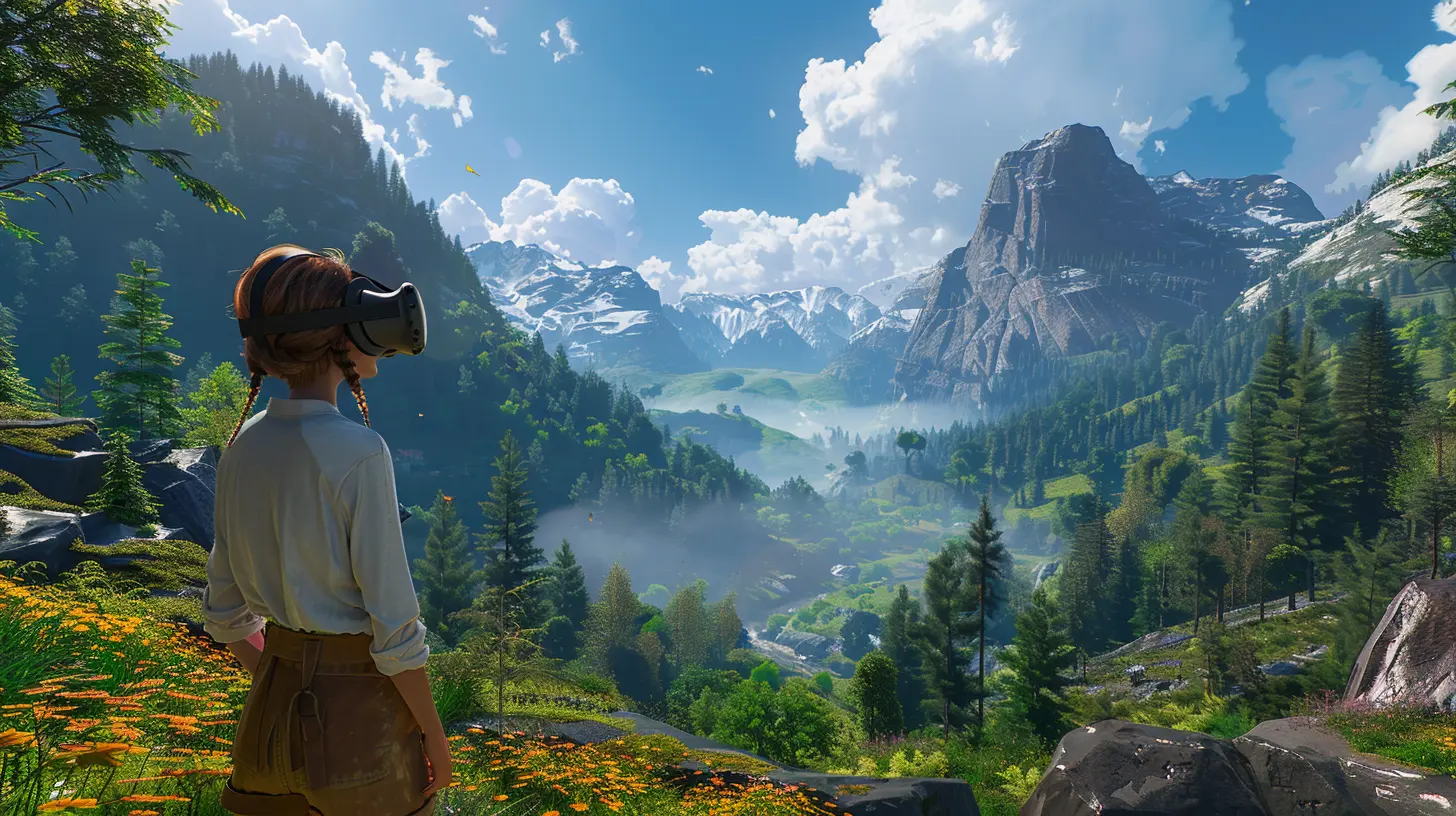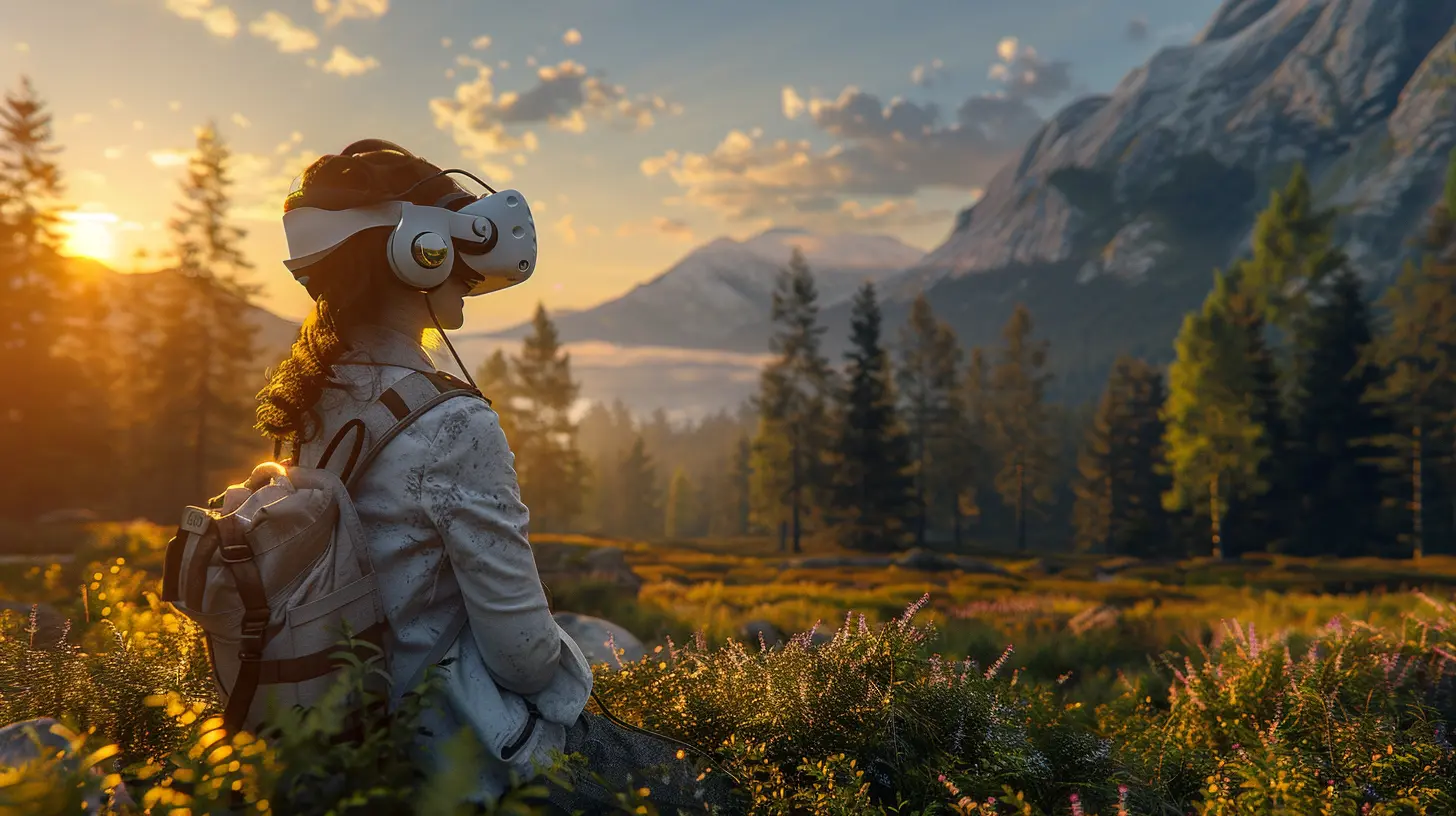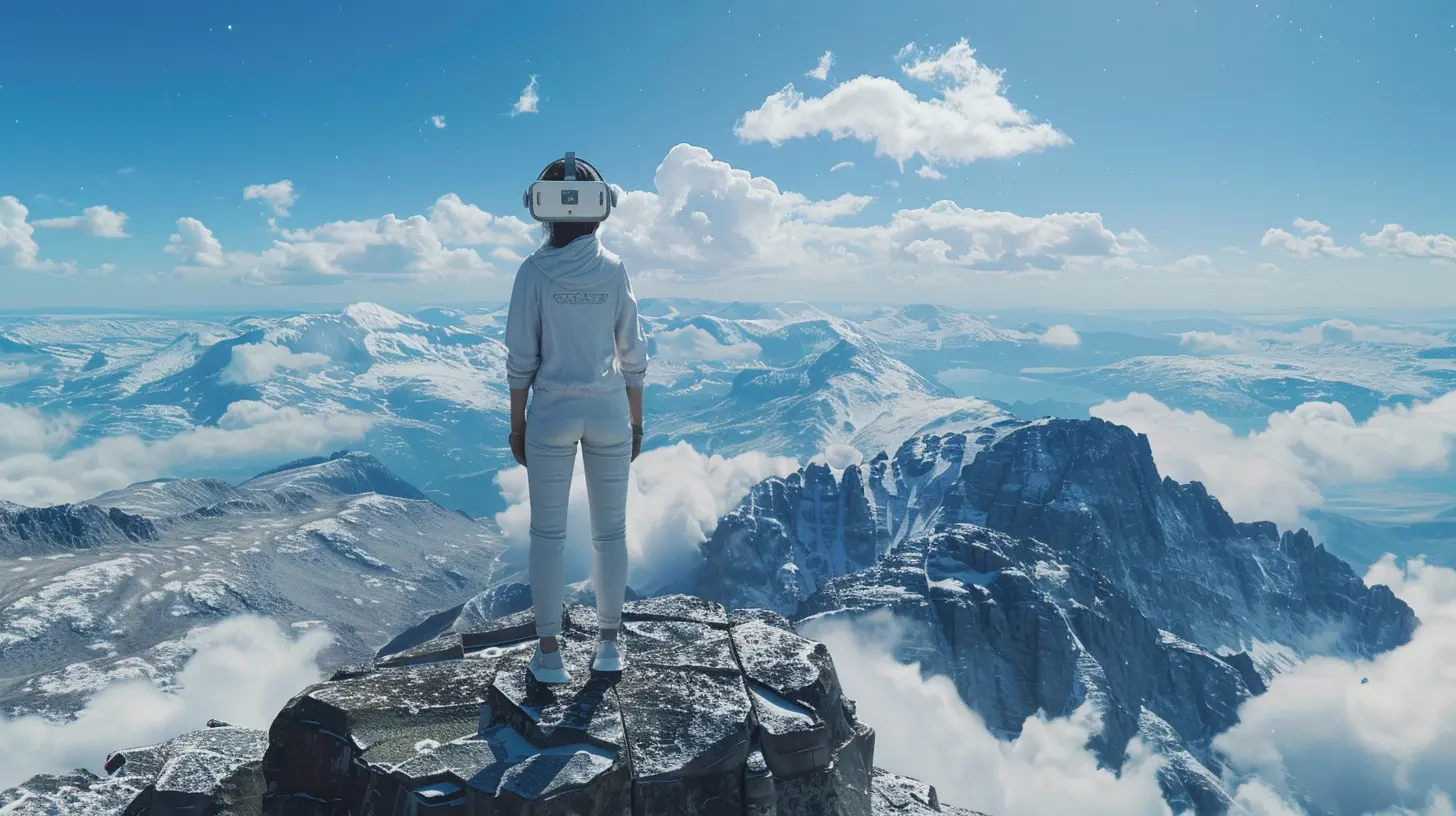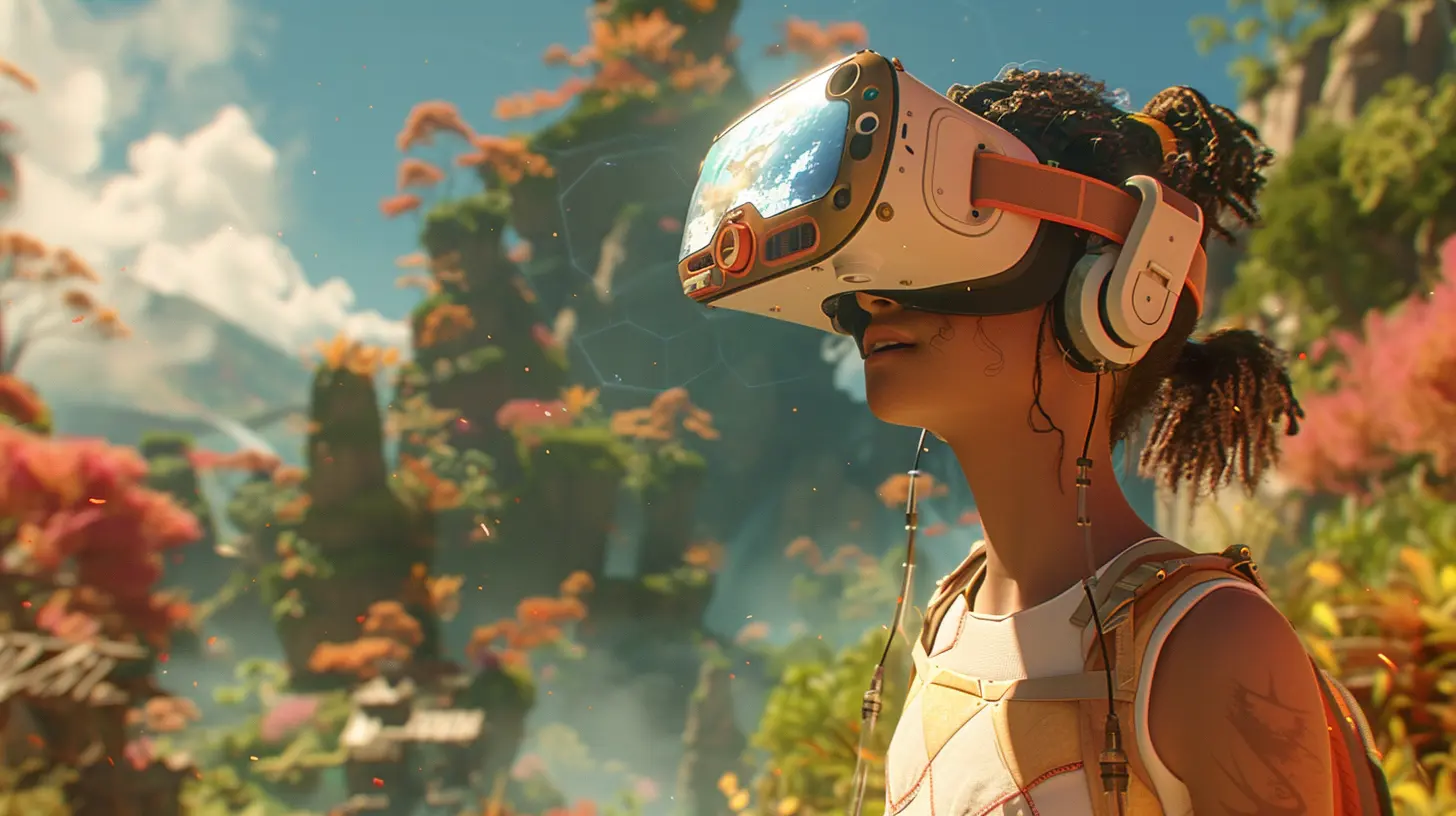Crafting Open World Experiences in VR: What Makes Them Special?
7 August 2025
Over the past decade, virtual reality (VR) has evolved from a niche technology to a revolutionary medium for gaming and storytelling. And let’s be honest – who doesn’t want to step into another world, leaving the mundane behind? Among all the VR genres, open-world experiences stand out as the pinnacle of immersion. These sprawling, interactive environments allow players to roam freely, interact with their surroundings, and craft unique personal stories. But what exactly makes open-world VR experiences so special? Let’s dive in and uncover the magic behind these virtual adventures.
What Defines an Open World?
Before we get ahead of ourselves, let’s address the basics. An open world in gaming refers to a large, expansive environment where players aren’t shackled to linear progression. Think of games like The Legend of Zelda: Breath of the Wild or Elden Ring, but imagine stepping into those worlds instead of controlling them through a screen. It’s like the difference between watching a travel documentary and booking a plane ticket – VR makes the journey personal.In open-world VR games, this concept is dialed up to 11. Not only can you walk across rolling hills or dense cities, but you can also feel the world around you. Want to climb a mountain? Your arms will get a workout. Want to pick up a sword? You’ll literally have to swing it. That’s the beauty of VR – it bridges the gap between fantasy and reality like no other medium.
The Key Ingredients of a Great Open-World VR Experience
So, what separates an okayish open-world VR game from a jaw-dropping, “I’m-never-taking-this-headset-off” experience? It boils down to a few critical elements:1. Immersive Visuals and Soundscapes
Let’s paint a picture. You’re standing in the middle of a lush forest. Sunlight pierces through the canopy, casting dappled shadows on the forest floor. You can hear the gentle rustling of leaves, the distant chirping of birds, and maybe even the occasional babbling brook. Sounds serene, right?In VR, visuals and soundscapes work together to trick your brain into believing the environment is real. High-fidelity graphics, realistic lighting, and spatial audio aren’t just bells and whistles – they’re fundamental to making you feel like you’ve stepped into another world. Without them, you’re just a floating pair of hands in a pixelated void.
2. Freedom of Exploration
Remember when you were a kid, running around the playground without a care in the world? Open-world VR taps into that same sense of adventure and curiosity. It’s not just about completing missions or leveling up; it’s about wandering. Where does that hidden cave lead? What’s at the top of that mountain? The joy of discovery is amplified in VR because every step feels like your step.This freedom also fosters creativity. Some players spend hours building settlements in games like No Man’s Sky VR or just chilling by the river in VRChat. It’s not always about the destination – sometimes, it’s the journey that counts.
3. Interactive Environments
Let’s say you’re in a medieval VR world, standing in a tavern. In a traditional game, the most you could do is look at a menu or maybe click on an NPC to trigger a dialogue. But in VR, you can pick up a tankard, take a swig, and toss it at the bard just because you feel like it.Interactivity is where VR shines. The more a game allows you to engage with its world, the more alive it feels. Whether it’s chopping down trees, petting animals, or solving puzzles by physically manipulating objects, these tactile interactions make the experience feel tangible – like you’re really there.
4. Immersive Storytelling
If you’ve ever cried during a movie or cheered at the end of a book, you know how powerful storytelling can be. Now, imagine being an active part of that story instead of just an observer. VR brings narratives to life in ways that other mediums can’t.In games like Half-Life: Alyx or The Walking Dead: Saints & Sinners, you’re not just watching the plot unfold – you’re the protagonist. Characters talk to you, not just at you. Decisions you make can shape the world and its outcomes. It’s like living in a book where every chapter is written by your actions.
5. A Sense of Presence
Here’s the thing: VR isn’t just about cool graphics or fancy controllers. The real magic lies in its ability to create a sense of presence. When you’re in a well-crafted VR world, you forget about the real one. You’re no longer someone sitting on their couch with a headset strapped to their face – you’re a warrior, a pilot, an astronaut, or whatever the game allows you to be.This presence doesn’t come easy. Developers have to nail everything from the smoothness of movement to the intuitiveness of interactions. Too much lag or clunky controls can break the illusion faster than you can say “immersion.”
What Makes Open-World VR Unique Compared to Traditional Open-World Games?
Okay, so open-world games have been around for ages. What makes them so different in VR? Let’s break it down:1. First-Person Perspective
In VR, you’re not just controlling a character – you are the character. When you look down, you see your hands. When you turn your head, the world moves with you. This first-person immersion makes even mundane tasks feel exciting. Chopping wood? Thrilling. Carrying supplies? Surprisingly satisfying.
2. Physical Engagement
Ever feel sore after a couple of hours in VR? That’s because open-world VR games demand physicality. You’re not pressing buttons to swing a sword – you’re physically swinging it. While it might take some getting used to, this engagement adds a layer of realism that traditional games just can’t replicate.
3. Emotional Connections
Because you’re so physically and mentally immersed, the emotional impact of VR games hits harder. A sunset over a mountain feels awe-inspiring. An encounter with an enemy can be downright terrifying. Your brain can’t always distinguish between real and virtual, which makes every moment more intense.
Challenges in Crafting Open-World VR Games
Of course, developing open-world VR games isn’t all rainbows and unicorns. There are some pretty hefty challenges:1. Technical Limitations
Creating massive open worlds requires a lot of processing power. Now, add VR into the mix, and you’ve got a recipe for potential performance issues. Developers have to strike a balance between visual fidelity and smooth gameplay to avoid making players feel like they’re riding a rollercoaster.2. Motion Sickness
Let’s face it: not everyone has their VR legs. Rapid movements, inconsistent frame rates, or poorly executed locomotion systems can lead to nausea faster than a poorly made theme park ride. Developers have to be super careful to ensure smooth, comfortable gameplay.3. Content Density
An open world isn’t fun if it feels empty. But filling a massive world with meaningful content requires time, effort, and creativity. No one wants to explore a barren wasteland (unless that’s the point of the game, of course).The Future of Open-World VR
So, what’s next for open-world VR? As technology continues to improve, the possibilities are endless. With advancements in AI, we might see NPCs that feel more like real people. Better hardware could allow for bigger, more detailed worlds. And who knows – maybe one day we’ll have fully haptic suits that let us feel every interaction.There’s also the potential for cross-platform experiences. Imagine starting an adventure on your PC, then donning a VR headset to fully immerse yourself in the same world. The line between virtual and reality is blurring, and it’s an exciting time to be a gamer.
Final Thoughts
Crafting open-world experiences in VR isn’t just about creating big maps or pretty graphics. It’s about building worlds that feel real – places where players can lose themselves, connect emotionally, and create their own stories. While there are challenges to overcome, the potential of open-world VR is boundless. Whether you’re slaying dragons, piloting spaceships, or just vibing in a virtual café, these experiences remind us why VR gaming is so incredibly special.all images in this post were generated using AI tools
Category:
Virtual RealityAuthor:

Whitman Adams
Discussion
rate this article
2 comments
Francesca Middleton
Open world VR transforms gaming into a boundless adventure, igniting creativity and immersion like never before. Dare to explore!
November 11, 2025 at 5:37 AM

Whitman Adams
Thank you! Open world VR indeed unleashes unparalleled creativity and immersion, allowing players to truly live their adventures.
Emmett McElveen
Great insights! The immersive nature of VR truly enhances open world experiences, allowing players to engage with vast environments in ways that traditional gaming cannot match.
August 11, 2025 at 4:53 AM

Whitman Adams
Thank you! I'm glad you found the insights valuable. VR indeed transforms open world gaming by creating deeper immersion and engagement.


